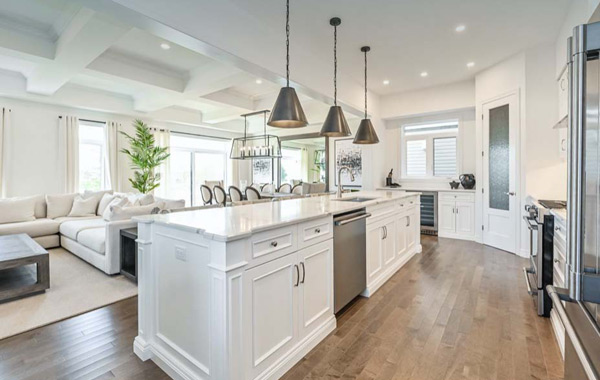By Lee Piccoli
Fusion Homes
Whether we were ready for it or not, COVID-19 was something that was thrust upon us, and the catalyst to the rapid transformation of many industries. Real estate is no exception; how we work and conduct business has had to evolve to accommodate the new reality we are currently in.
As founder and CEO of Fusion Homes, my team and I have diligently worked to remain agile during this period of uncertainty in order to best connect with, and support our team members, customers and partners while continuing to drive business forward. We’ve learned that agility is paramount in succeeding during times of great uncertainty; it’s essential to cater your approach and the way you do business to accommodate the current and future needs of those you’re trying to reach. In turn, foresight is also crucial as a means of best preparing for what lies ahead.
With this in mind, I’m sharing some of the macro-trends materializing in the industry to consider in order successfully adapt to the transformation that is taking shape:
Digital-first mindset
With physical distancing guidelines and strict measures in effect to stop the spread of COVID-19, developers and partnering businesses must have a digital-first mindset. Exercising creativity and a new way of thinking related to launching new projects or releases is crucial to meet your consumers’ current needs to allow your business to flourish. At Fusion Homes, we’ve conducted 10 releases since the start of the pandemic, facilitating our first-ever virtual release, along with online galleries, customer service support, and more. We’ve evaluated new ways of connecting with consumers, through social media, for example, and have looked at storytelling through a new lens. This has allowed us to build further trust with our target audiences. While this agile mindset was certainly exercised previously, it’s now at the forefront of all thinking, and will continue to be, as we move through the potential of a second wave… and further, once we’re on the other side of this.
De-urbanization
With companies embracing the reality of our new normal and veering away from the typical 9-to-5 model, de-urbanization is another prevalent shift underway; consumers are starting to look for more space as they spend increased time at home.
Adopting a customer-first mindset and having the foresight into upcoming needs is incredibly invaluable in our current climate. Think about this new mentality as you begin to shape your business goals for the future and where you plan on investing.
Community experiences
While mixed-use developments were certainly prioritized as an essential community model before the pandemic, we’ve now seen a spike in demand for communities with infrastructure and experience at the forefront. Developers must have a forward-thinking mindset, especially as it relates to investment. I find it helpful to think about my future self and what my upcoming needs will be, then applying those takeaways to business strategies and project development. Top-of-mind is expansive outdoor amenities and retail locations near home.
Fortunately, or not fortunately, there’s no going back to the pre-pandemic past, but what’s important to remember is that this has allowed us the opportunity to reimagine how we move forward as an industry. Staying on top of where the sector is headed and catering your approach to best accommodate these evolutions is critical to remain successful during the rapid transformation that is underway.
 |
Lee Piccoli is Founder & CEO of Fusion Homes. |











